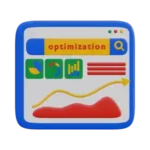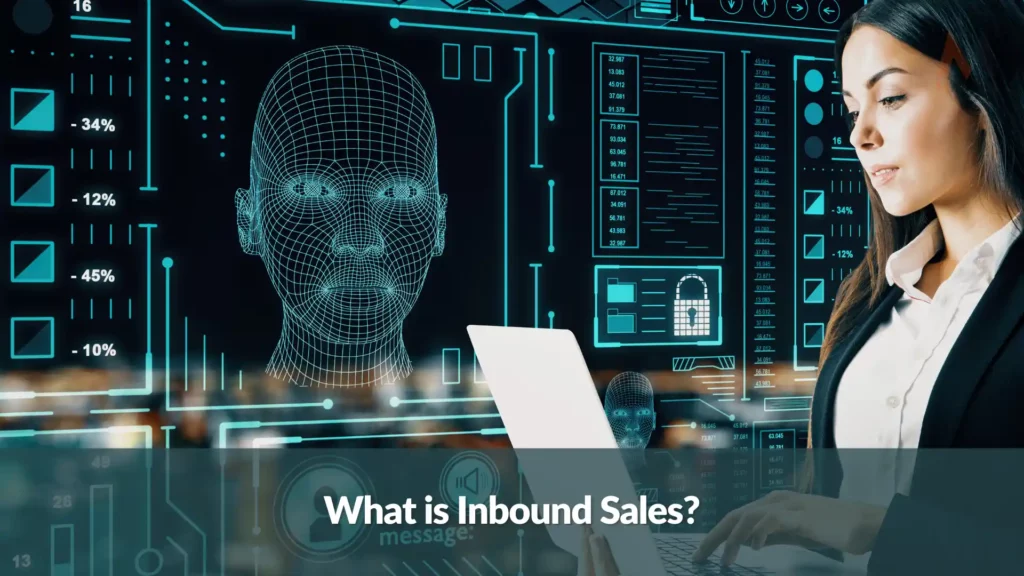What is Inbound Sales?
What is Inbound Sales?
Inbound sales is a sales methodology that focuses on attracting and engaging potential customers through personalized, relevant, and helpful interactions.
This approach for the inbound sales team is centered around the idea that customers should find and come to you rather than you reaching out to them through traditional, often intrusive, sales methods like cold calling or mass email campaigns.
What is Inbound Sales? (inbound vs outbound sales)

The inbound sales process generally involves the following stages:
- Attract: In this stage, and businesses create valuable content and resources to attract potential customers. This can include blog posts, social media, videos, podcasts, webinars, and other forms of content that address the target audience’s needs, interests, or pain points.
- Convert: Once potential customers are engaged with your content, the goal is to convert them into leads by capturing their contact information. This is usually done through forms, landing pages, or chatbots, where users provide their information to access additional resources or insights.
- Close: In this stage, the sales team develops the leads and moves them through the inbound sales and inbound sales funnel. This can involve personalized email campaigns, demos, consultations, or other tailored interactions. The goal is to build trust and demonstrate how your product or service can solve the lead’s specific problem or meet their needs.
- Delight: The final stage is about turning customers into promoters of your brand. This involves providing excellent customer service, ongoing support, and additional resources that help them succeed with your product or service. Happy customers are more likely to refer others, leave positive reviews, and become repeat buyers.
Inbound sales are closely related to inbound marketing, as both methodologies emphasize attracting and nurturing leads through relevant, helpful content and personalized interactions.
By aligning sales and marketing efforts, businesses can create a more seamless experience for their prospects, leading to higher conversion rates and increased customer satisfaction.
What is inbound marketing?

Inbound marketing is a customer-centric approach that focuses on attracting, engaging, and delighting potential customers by providing them with valuable content and experiences tailored to their needs and interests.
The goal is to build trust, credibility, and lasting relationships with the audience, ultimately converting them into leads, customers, and brand promoters.
Inbound marketing involves several key components:
- Content creation: Produce high-quality, relevant, and valuable content that addresses the pain points, interests, or needs of your target audience. This can include blog posts, articles, infographics, videos, podcasts, e-books, whitepapers, webinars, and more.
- Search engine optimization (SEO): Optimize your content and website to rank higher in search engine results pages (SERPs) for keywords relevant to your target audience. This helps increase the visibility of your content and makes it easier for potential customers to find you.
- Social media marketing: Use social media platforms to share your content, engage with your audience, and expand your reach. This can help you build a community of followers and generate additional traffic to your website or landing pages.
- Email marketing: Capture leads through forms, landing pages, or other methods, and use email marketing to nurture these leads by providing them with personalized, relevant content that moves them through the sales funnel.
- Lead nurturing: Engage with leads by providing targeted, personalized content and interactions that build trust, demonstrate the value of your product or service, and address their specific needs or concerns.
- Analytics and reporting: Track and analyze the performance of your inbound marketing efforts to determine what’s working, what’s not, and where you can improve. This helps you make data-driven decisions and optimize your marketing strategy for better results.
Inbound marketing stands in contrast to traditional, outbound marketing methods, such as cold calling, direct mail, or mass advertising, which often involve interrupting or “pushing” messages onto potential customers.
Instead, inbound marketing aims to “pull” customers towards your brand by providing value and building meaningful relationships over time.
How Do You Align the Sales and Marketing Teams?

Aligning sales and marketing teams is crucial for a successful and cohesive business strategy.
When both teams work together, they can generate better leads, close deals more efficiently, and create a seamless experience for the customer. Here are some steps to align the sales and marketing teams:
- Establish common goals and objectives: Both teams should work together to define shared goals, such as revenue targets, lead generation, conversion rates, or customer retention. These goals should be specific, measurable, achievable, relevant, and time-bound (SMART).
- Develop a shared understanding of the target audience: Sales and marketing should collaborate to develop buyer personas representing their ideal customers. This includes understanding their pain points, needs, preferences, and motivations. This shared understanding will help both teams create relevant content, messaging, and sales strategies.
- Implement a Service Level Agreement (SLA): An SLA is a formal agreement that outlines the expectations and responsibilities of each team. This can include lead qualification criteria, the number of leads marketing should generate for sales, and the follow-up process and timeline for sales.
- Collaborate on content creation: Sales and marketing teams should collaborate to create content that addresses their target audience’s needs and pain points. Sales can provide insights into common customer questions and objections, while marketing can help craft engaging and informative content.
- Regular communication and meetings: Schedule meetings between the sales and marketing teams to discuss progress, challenges, and opportunities. This can include weekly or monthly meetings and ad-hoc check-ins when needed.
- Share data and insights: Both teams should have access to relevant data and insights, such as CRM data, website analytics, email campaign metrics, and social media engagement. This allows for informed decision-making and continuous improvement of strategies.
- Celebrate successes together: Recognize and celebrate the achievements of both teams, whether it’s hitting a shared revenue target, closing a significant deal, or launching a successful marketing campaign. This fosters a sense of camaraderie and shared ownership of the company’s success.
- Provide ongoing training and development: Encourage cross-functional training and development to help both teams understand each other’s roles, challenges, and best practices. This can include workshops, training sessions, or even job shadowing.
By aligning sales and marketing teams, businesses can create a more efficient and effective approach to attracting, nurturing, and converting leads, ultimately increasing revenue and customer satisfaction.
What Are the Technologies to Be Used with Inbound Marketing?
Various technologies and tools are available to support and enhance inbound marketing efforts. These tools help businesses manage, automate, and optimize their inbound marketing strategy. Some key technologies and tools include:
- Content Management System (CMS): A CMS allows you to create, manage, and publish content on your website. Examples of popular CMS platforms include WordPress, HubSpot, Joomla, and Drupal.
- Customer Relationship Management (CRM) software: CRM tools help you manage and track interactions with leads, prospects, and customers. They help you store contact information, track leads throughout the sales funnel and monitor customer engagement. Examples include Salesforce, HubSpot CRM, Zoho CRM, and Microsoft Dynamics 365.
- Marketing Automation Platforms: These tools help automate repetitive marketing tasks, such as sending emails, managing social media posts, and tracking user behavior. They also help segment and target your audience more effectively. Examples include HubSpot, Marketo, Pardot, and ActiveCampaign.
- Email Marketing tools: These platforms help you design, send, and track personalized email campaigns to nurture leads and engage customers. Examples include Hubspot, Mailchimp, Constant Contact, Sendinblue, and GetResponse.
- Social Media Management Tools: These tools help you manage and schedule social media posts, monitor engagement, and analyze the performance of your social media marketing efforts. Examples include Hootsuite, Buffer, Sprout Social, and Agorapulse.
- Search Engine Optimization (SEO) tools: SEO tools help you optimize your content and website for better visibility in search engine results pages (SERPs). They can assist with keyword research, on-page optimization, backlink analysis, and more. Examples include Ahrefs, SEMrush, Moz, and Google Analytics.
- Landing Page and Form Builders: These tools help you design and create landing pages and forms to capture leads and convert them into prospects. Examples include Unbounce, Leadpages, Instapage, and HubSpot.
- Analytics and Reporting tools: Analytics tools help you track and analyze the performance of your inbound marketing efforts, providing insights that help you optimize your strategy. Examples include Google Analytics, Adobe Analytics, and Kissmetrics.
- Graphic Design and Multimedia Tools: Visual content is essential to inbound marketing. Tools like Canva, Adobe Creative Cloud, and Piktochart help create attractive images, infographics, and other visual elements for your marketing campaigns.
- Webinar and Video hosting platforms: Webinars and videos are powerful content formats in inbound marketing. Tools like Zoom, Webex, GoToWebinar, YouTube, and Vimeo help you host, share, and manage your video content.
These technologies and tools can help streamline and optimize your inbound marketing efforts, making it easier to attract, engage, and delight your target audience.
You can create an effective and efficient inbound marketing strategy by selecting the right combination of tools that suit your specific needs and objectives.
What Does an Inbound Marketing Agency Do?

An inbound marketing agency is a specialized marketing firm that helps businesses develop and implement inbound marketing strategies to attract, engage, and convert leads into customers. These agencies typically offer services tailored to their client’s unique needs and objectives.
An inbound marketing agency’s key services include:
- Strategy development: The agency works with the client to create a comprehensive inbound marketing strategy, including defining target audiences, setting goals and objectives, and determining the best tactics and channels to achieve those goals.
- Content creation: The agency develops high-quality, relevant, and engaging content for the client, such as blog posts, articles, e-books, whitepapers, infographics, videos, and podcasts. This content addresses the target audience’s needs, pain points, and interests, helping attract and engage potential customers.
- Search engine optimization (SEO): The agency helps optimize the client’s website and content to rank higher in search engine results pages (SERPs) for relevant keywords. This can include on-page optimization, keyword research, link building, and technical SEO.
- Social media marketing: The agency manages the client’s social media presence, creating and sharing content, engaging with followers, and monitoring performance. This helps to expand the client’s reach and attract new leads.
- Email marketing: The agency designs and executes email marketing campaigns for the client, including lead nurturing, promotional, and informational emails. These campaigns help to build relationships with leads and encourage them to convert into customers.
- Lead generation and conversion: The agency creates and optimizes landing pages, forms, and calls-to-action (CTAs) to capture leads and convert them into customers. This can also involve implementing marketing automation tools and workflows to streamline the process.
- Analytics and reporting: The agency tracks and analyzes the performance of the client’s inbound marketing efforts, providing regular reports and insights to help the client make data-driven decisions and optimize their strategy.
- Training and consulting: Some inbound marketing agencies offer training and consulting services to help clients develop internal inbound marketing capabilities. This can include workshops, webinars, or one-on-one coaching.
By partnering with an inbound marketing agency, businesses can access specialized expertise and resources to help them develop and execute a successful inbound marketing strategy. This can increase brand awareness, higher-quality leads, and improved customer acquisition and retention.
Conclusion:
Working with an inbound marketing agency can help businesses increase their online visibility and generate more leads. By leveraging the expertise of experienced professionals, businesses can ensure that they are taking the right steps to reach their target audience and achieve the desired results.
Agencies can provide detailed reports and insights to help clients understand how their efforts are paying off and make improvements where necessary.
The right inbound marketing agency can be a key partner in helping businesses reach their goals, so choosing one with the right skills and experience is important to meet your needs. With this partnership, businesses can expect greater success in their online marketing efforts and enjoy the long-term rewards of an effective inbound marketing strategy.
In addition to the services provided by inbound marketing agencies, such as website design, content creation, and SEO optimization, many other benefits come with working with an experienced team.
For example, they can help you develop campaigns on social media platforms that will effectively reach your target audience and bring in more qualified leads.
They can also provide valuable insights into the current market trends and how to capitalize on them. Partnering with an experienced inbound marketing agency can open up a world of opportunities for your business.
Matrix Marketing Group is an AI-driven digital marketing agency using inbound methodologies. Our team of experts offers comprehensive solutions tailored to each business’s unique needs.
We craft content and campaigns to set your company apart while driving qualified leads and conversions, including inbound sales strategies. From website design and search engine optimization to media marketing and lead generation, Matrix Marketing Group has you covered. Contact us today for a personalized consultation!
General FAQs
What are inbound sales?

Inbound sales is a customer-centric approach to marketing and sales that focuses on creating meaningful connections with potential customers. It primarily uses digital channels like social media, organic search, email, and content marketing to build relationships with prospects and generate qualified leads that can be converted into paying customers.
What services does an inbound marketing agency provide?

An inbound marketing agency provides services for creating and implementing effective digital strategies for businesses. These services may include website design, SEO, PPC advertising, content creation, branding & design, analytics & insights tracking, lead generation & nurturing campaigns, and more.
How will partnering with an inbound marketing agency help my business?

Partnering with an experienced inbound marketing agency can open up a world of opportunities for your business. By tailoring their services to fit your unique needs, an agency can help you craft content and campaigns that will set your company apart from the competition while driving qualified leads and conversions – all without requiring additional resources or time from you or your team!
How do I contact Matrix Marketing Group for a consultation?

You can contact Matrix Marketing Group by visiting our website at matrixmarketinggroup.com or by calling us at 1-303-351-1645 for more information, or to schedule a personalized consultation with one of our experts!

